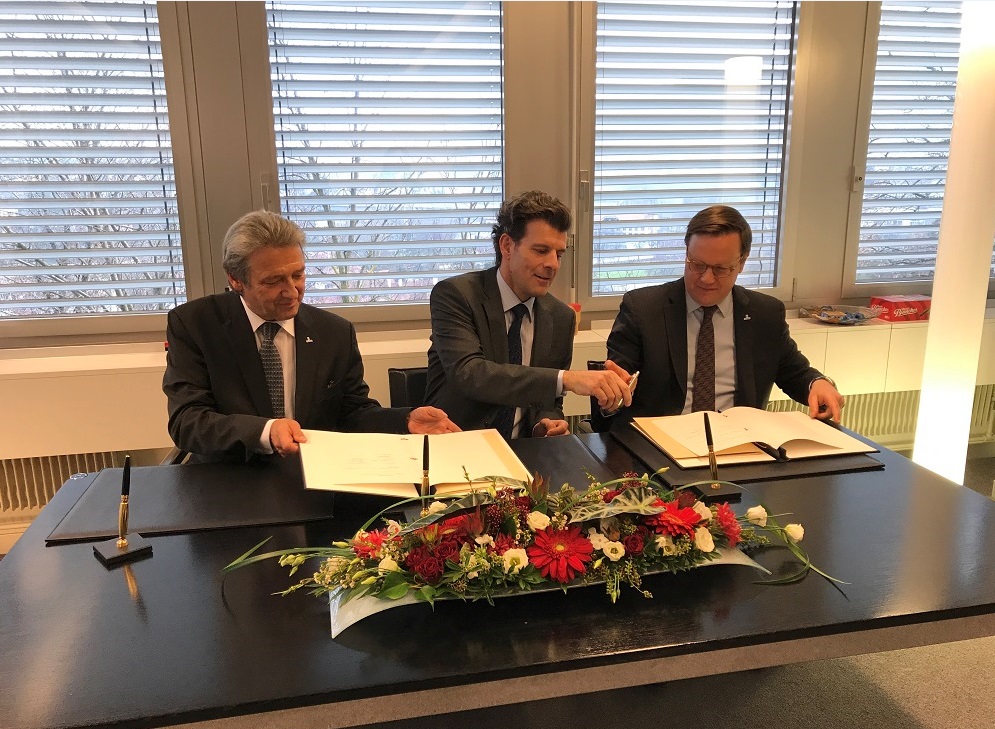Interpeace is recognized as an international entity by the Swiss government

Geneva/Bern, 15 January 2018 – Interpeace has been officially recognized as an international entity by the Federal Council. Gathered today in Bern, both parties signed an agreement based on the Host State Act. This acknowledgement reaffirms the important role played by the organization in peace processes.
Headquartered in Geneva, Interpeace has been facilitating formal and informal peace processes for nearly 25 years. Active in over 20 countries, the organization brings together actors of the international community, the government, civil society and local communities in order to find unified solutions to the deepest causes of conflict. “We place a particular emphasis on the important role local actors must play in making peace sustainable,” explained Scott Weber, Director-General of the organization.
Interpeace and Switzerland already work closely together. Thanks to its partnership with the Human Security Division of the Federal Department of Foreign Affairs, Switzerland and Interpeace work towards putting in place joint strategies that will enable the stability of fragile states or regions. "In an increasingly polarized world, our combined efforts to promote dialogue and peaceful conflict resolutions are more necessary than ever,” commented the Director-General of Interpeace.
During the signing of the agreement, Scott Weber announced a new step for the future of the organization: “This recognition given by the signed agreement today will allow us to start a new chapter in the history of Interpeace. This status will allow us to increase our impact wherever we operate”.
Media Contact
Alexandre Munafò
Head of Global Engagement
+41 79 272 73 22
munafo@interpeace.org
About Interpeace
Interpeace was initially founded in 1994 by the United Nations in Geneva. Its mission is to promote lasting peace among countries affected by latent and recurring crises. Since the year 2000, it operates as an independent organization, and has become a reference organization for the international community, with regards to supporting peace processes.
The headquarters of Interpeace are located in Geneva, and its regional offices in Abidjan, Côte d’Ivoire; Brussels, Belgium; Guatemala City, Guatemala; Nairobi, Kenya; New-York, United States and Stockholm, Sweden.
Interpeace is active in over 20 fragile states. The organization played a key role, particularly building up Somalia after a long civil conflict. It also gave support towards the implementation of the peace agreement in Guatemala and is currently helping to implement a peace agreement in Colombia. Finally, in West Africa, Interpeace and its partners organize dialogues to enable local populations to better respond to their security challenges.
